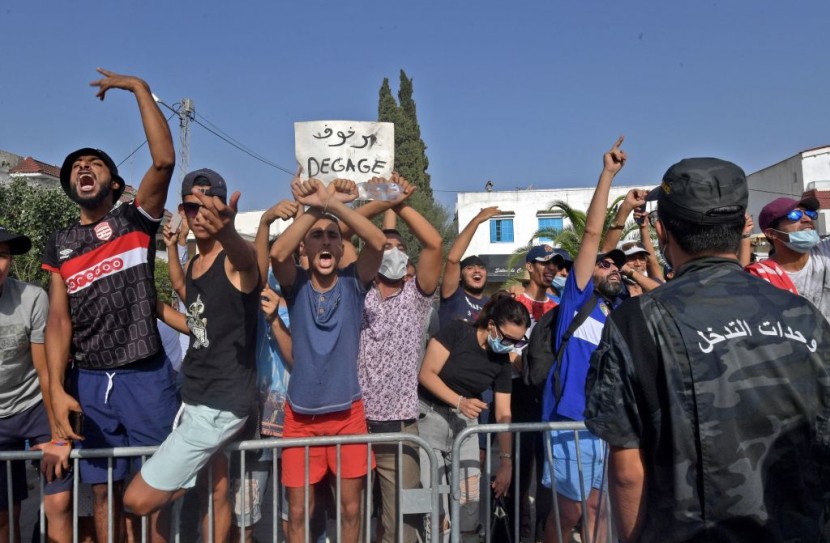
Tunisia is now facing uncertainties as residents find themselves confused which side to support as the country's democracy lies in crisis.
Tunisian President Kais Saied, 63, on Sunday ousted Prime Minister Hichem Mechichi and suspended Parliament for up to 30 days in what his political opponents and activists call a coup.
However, the 63-year-old argued that his decision to oust Mechichi comes after thousands of Tunisians protested against the government's handling of the COVID-19 pandemic, according to CNBC.
Tunisia's Chaotic Situation
The country's army personnel were dispatched Monday after Saied's supporters faced off with people, including Parliament Speaker Rached Ghannouchi, who opposed the new government.
"I am against gathering all powers in the hands of one person," Ghannouchi said outside the parliament building, according to TRT World.
The 63-year-old former law professor on Sunday also announced he was stripping all parliament members their immunity from prosecution. Additionally, the country's residents are required to follow a nationwide month-long curfew from 7 p.m. to 6 a.m. Tunisians are also banned from holding a gathering of more than three people in public spaces.
Saied is a former constitutional law professor who was nicknamed "robocop" for his formal demeanor and awkward manner of speaking. He is currently in charge of Tunisia's executive, legislative and judicial branches.
The scenes on Monday have posed the biggest challenge to Tunisia's democracy since 2011, when a series of pro-democracy uprisings called Arab Springs occurred across several Muslim countries, including Bahrain, Egypt, Syria and Tunisia.
Read Also: Donald Trump Jr. Dominates Most Popular Republicans Poll; Will He Run in the 2024 Election?
The revolution began in December 2010 under the dictatorship of Zine el-Abidine Ben Ali after 26-year-old Tunisian fruit vendor Mohammed Bouazizi set himself on fire after police officers who attempted to confiscate his goods, beat him with a baton and slapped him in front of 50 witnesses.
The Start of Revolution
"Why are you doing this to me?" he cried, according to vendors and customers who were there, as reported by The Washington Post. "I'm a simple person, and I just want to work."
Bouazizi later poured paint thinner over himself and set himself aflame. Medical personnel arrived at the scene an hour and a half after he lit the match. He died three weeks later.
Bouazizi's death spurred the Jasmine revolution, with residents protesting on the streets of Tunis, the country's capital. The revolution prompted then-president Ben Ali to abdicate his position after more than 20 years in the seat.
The Jasmine revolution also inspired activists in other countries to protest for a regime change, which resulted in demonstrations against similar authoritarian governments, according to History.com.
The COVID-19 pandemic has killed more than 18,000 Tunisians. The number of cases are also rapidly increasing among the general population where less than 9% of people are vaccinated against the virus.
The country has also set a record-high number of daily cases this month, with health officials recording 9,823 new infections on July 7. In the week beginning July 4 and ending in July 10, Tunisia has recorded more than 53,000 new cases, according to Johns Hopkins University.
Related Article:








